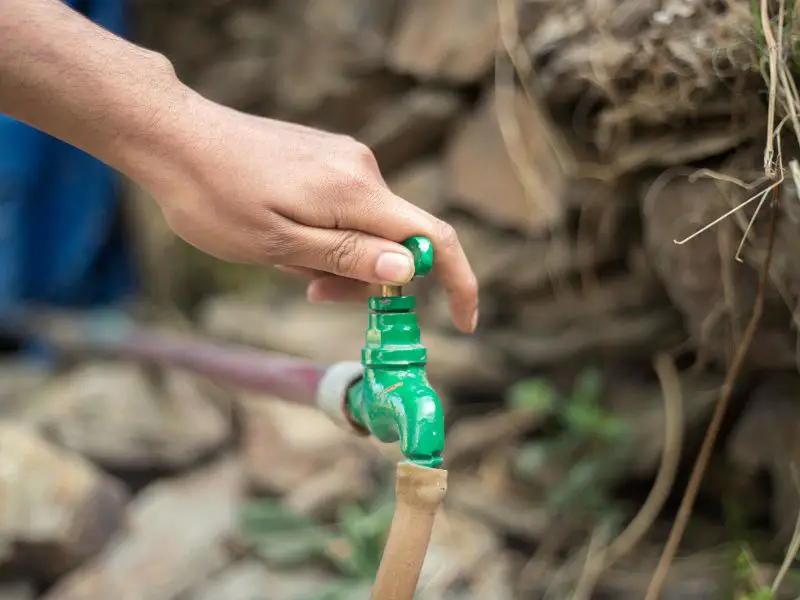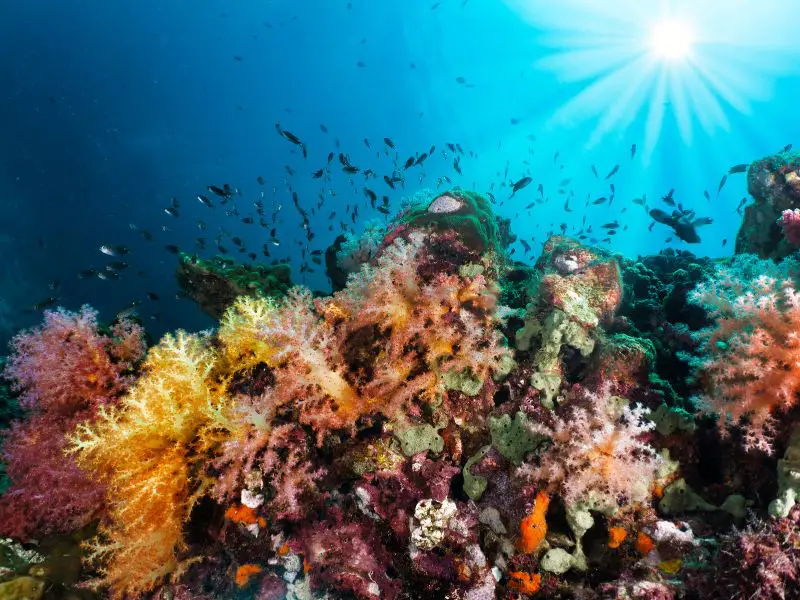With global warming and extreme weather conditions becoming the new normal, ensuring the preservation of clean water has become an even more critical issue worldwide. Annually, approximately 2 trillion gallons of clean water are wasted due to leaky pipes. This article discusses why we must conserve water and how we can do it habitually.
Water Conservation
Water conservation is the act of reducing the consumption of water to preserve the amount available for future generations of humans and wildlife.
Water conservation refers to measures taken to reduce the amount of water used—for example, by reducing the demand for water through reduced consumption, increased efficiency, or recycling wastewater.
Water conservation is done at every level of society, from individual households to large industrial enterprises and governments.

Why Conserve Water?
Here I’ll show you a few reasons why.
- Many people think our water supply is infinite. But it’s quite the opposite. Many people don’t know how important and rare water is. Only 2% of the fresh water on Earth is found in ice caps and glaciers, whereas 97.5 % of the water on Earth is saltwater. Population increases every day, which makes the already limited amount of water even more scarce. To save the future of water preservation, we need to learn how to make the most of what we have.
- By the year 2030, it is expected that half of the world’s population will be “water stressed.” Even so, we still waste a lot of water by doing things like watering lawns, using agricultural, industrial, and municipal methods that use a lot of water, and frequently polluting fresh water through agricultural runoff and the use of chemicals
- As the climate continues to warm, we see an increase in drought conditions and desertification in many parts of the planet. This will make it exceedingly difficult to provide sufficient water for the increasing world population.
- Pumping water from the central facility requires high energy to power the equipment. According to studies, about 7% of the energy consumed in California is used to transport water. In the end, conserving water means conserving energy and lowering your carbon footprint.
Problems Caused by Water Scarcity
1. Lack of Access to Drinking Water
Today approximately 2 billion people don’t have access to safe drinking water. Many of these people live in impoverished regions. So they don’t have access to basic sanitation or hygiene. The human body can only go without water for such a short period before it starts to suffer severe consequences, and these consequences can pose a variety of problems.
“When the well is dry, we learn the worth of water.”
— Benjamin Franklin
2. Hunger
Water scarcity is a problem that affects not only Africa but also the whole world. According to research, by 2025, about 1.2 billion people will be living in countries where water is scarce, and about 500 more million people are nearing this situation.
The most pressing issue caused by water scarcity is hunger. About 1 billion people worldwide suffer from chronic hunger or hunger-related diseases. Water scarcity is the root cause of this. Food production spends about 70 percent of the world’s freshwater resources. Therefore, a shortage of water means a lack of food, too.

3. Lack of Education
Water scarcity makes it harder for people to get the education they deserve. Why? Those children are either too sick to attend school or are working to help carry water to their homes and families. Even those children attending school are often too ill to learn because of water-borne diseases like cholera or dysentery.
4. Diseases
If you do not have access to clean water, you can get diseases from the water that you do have. Those diseases can also enter the body if you drink or bathe in water.
In some situations, humans can carry bacteria and infect others. In severe cases, these infections can kill people and spread across borders, leading to pandemics.
5. Loss of Biodiversity
Certain species die or go extinct in regions suffering a severe shortage of freshwater. Plants can’t grow sustainably, leading to a significant loss of life.

Sustainable Practices to Conserve Water and Protect Our Future
In the current environmental landscape, the importance of finding innovative ways to conserve water cannot be overstated. With each gallon saved, we contribute to mitigating the pressing water shortage and enhancing water efficiency. The Environmental Protection Agency champions these conservation efforts, underscoring the critical need to preserve our water resources.
Rainwater Collection: A Simple Step to Conserve Water
Utilizing a rain barrel is an excellent water conservation tip, allowing homeowners to conserve water by harvesting rainwater. This not only addresses water loss but also helps in maintaining optimal soil moisture, which is vital for garden health. By doing so, we’re ensuring that our potable water is reserved for essential uses.
Drip Irrigation: The Epitome of Water Efficiency
Drip irrigation stands out as a stellar example of how to conserve water in the realm of agriculture and gardening. By delivering water directly to the roots of plants, drip irrigation systems maintain soil moisture while minimizing water consumption. This method of irrigation is at the forefront of agricultural water efficiency.
Water Conservation Tips for the Household
Adopting a habit of taking a shorter shower is more than a water saving tip; it’s a commitment to conserve water every day. Similarly, running a washing machine only when it’s full conserves water and reduces water bills. These practices are small but significant steps towards saving water in our daily lives.
Kitchen Strategies to Conserve Water
When it comes to dishes, one of the simplest ways to conserve water is to avoid running water continuously. Filling a basin with soapy water or using rinse water efficiently reduces water consumption substantially. This approach not only conserves water but also promotes water quality by reducing the need for wastewater treatment.
Upgrading Toilets: Saving Water with Every Flush
Modernizing the toilet tank with a dual flush mechanism is a direct approach to conserve water. By allowing the option to use less water for each flush, this innovation is crucial for water efficiency in the household. Fixing a leaky faucet also contributes to water conservation, preventing the unnoticed wastage of water resources.
Laundry Room Tactics: Cold Water and Water Conservation
Switching to cold water in the laundry room is an effective way to conserve water and energy. Cold water washes extend the life of clothing and save hot water, reducing overall water consumption. This practice is not only about saving water but also about embracing renewable energy by reducing the need for water heating.
Integrative Water Efficiency: A Holistic Approach
To conserve water effectively, an integrated irrigation system that adjusts based on soil moisture can significantly reduce water consumption. Additionally, choosing to water plants during cooler parts of the day helps conserve water by reducing evaporation.
The Economic Benefits of Water Conservation
Every measure we take to conserve water not only contributes to solving the global water shortage but also benefits us financially by lowering our water bills. Water conservation tips lead to more mindful water usage and align with the goals of environmental protection agencies dedicated to conserving water and maintaining ecological balance.
In weaving these practices into the fabric of our daily lives, we not only conserve water but also pledge allegiance to a sustainable lifestyle. From mindful irrigation to fixing a leaky faucet, each action we take to conserve water resonates with the broader goal of securing water resources for generations to come.
10 Tips for Conserving Water Every Day
Water conservation is a critical issue worldwide, with many areas suffering from shortages or experiencing droughts. For industries and homeowners, preventing unnecessary water usage can lower utility bills. It can reduce water waste and pollution, making water conservation a win-win for the planet and everyone.
“Water is life’s matter and matrix, mother and medium. There is no life without water.”
— Albert Szent-Györgyi
During these warmer months, we spend more hours outside tending to our lawns, growing our gardens, and washing our cars. These activities all need water. More than fifty percent of the average household’s water is outside the house. These simple techniques will help you conserve water.
- Water your lawn only when needed, and when you do, water it deeply and less often. Water the lawn less during the summer and more in the winter when there’s less evaporation.
- Take shorter showers, nozzle off the water while soaping up, and use water-saving shower heads. When done habitually, it can save you lots of water.
- Wash windows with a spray bottle and a soft cloth instead of using the hose and bucket.
- Let your laundry machine run full loads, or use the air-dry setting when possible.
- Install low-flow shower heads and faucet aerators in your bathrooms. This reduces the amount of water you use without you knowing it.
- Use the bucket of water to wash the car instead of letting the hose run continuously.
- Collect rainwater when it rains. It’s free; you can use it to water the plants and even wash your car.
- Only run the faucet when needed, not wasting water down the drain.
- Sweep your sidewalks instead of using a hose to spray the water all over the sidewalk. You can save up to 5-7 gallons of water every minute you use the hose.
- Turn off the faucet when brushing your teeth.
“In every drop of water, there is a story of life.”
— Leena Arif
Author’s Note
The best way to save water is to stop using too much in the first place! By following these simple habitual tips, you can significantly reduce the amount of water you use daily and simultaneously help the environment. The Earth’s water is a finite resource, and we need to be more responsible with how we use it. Every drop counts.
Check out these eco-friendly guides to learn how to live a greener life: 8 Worst Polluted Beaches In The World, Top Sustainable Technologies, 62 Everyday Habits for a More Sustainable Lifestyle



;?>/smartquizbuilder/includes/images/sqb-registration-img.jpg)




4 thoughts on “10 Simple Ways to Save Water and Money: Expert Tips for a Sustainable Future”